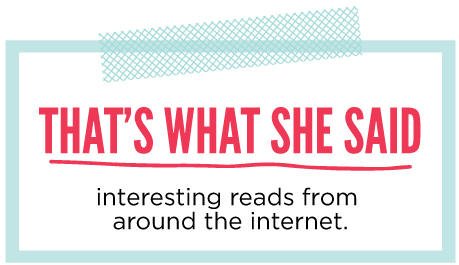 Five Reasons Why Urban Farming Is The Most Important Movement Of Our Time | GOOD
Five Reasons Why Urban Farming Is The Most Important Movement Of Our Time | GOOD
Local neighbor-to-neighbor commerce generally doesn’t happen in our communities. Residential areas almost never include common spaces where community exchanges might happen. Likewise, because selling homemade bread to your neighbors is illegal in most areas, the law discourages community commerce, and instead encourages you to purchase from the supermarket chain. In my own community, the urban farming movement has reinvigorated local commerce. Instead of buying oranges, I now trade pumpkin for oranges from my neighbor’s tree. If urban farming continued to grow, it would cause a massive and positive economic disruption by introducing local food production that would compete with the corporate mainstream on price, quality, convenience, and level of service.
The Day We May Have Seen A Man Die | Sassafrass
Later than that, over a glass of wine in the hotel lobby, the sun would set and I would cry. I would explain to the Not Boyfriend that my grateful words to God were interrupted, perhaps by a man dying. I’d tell him how my own experiences made me wary of feeling too much happiness, how I’d learned to live protectively, waiting for disaster or tragedy or heartbreak. I’d say I was so sorry. That I don’t want to live this way. That I’d been working so hard to release and release and be present inside the moments.
10 Ideas For Saving America’s ‘Dying Church’ (If That’s What You Want To Do) | Matthew Paul Turner
Become a living breathing part of the community you make up. A church pursuing “community” isn’t about small groups or a Tuesday night gathering, it’s about becoming one with the people who exist around you, whether they tithe to your church or not.
Purple Boots, Silver Stars … And White Parents | NYTimes.Com
Raising kids of color by white parents is not just a matter of love; it requires a racial consciousness that is common in families of color, but rarely developed in white families. And it needs an understanding that one’s family is not only challenged by the centrifugal force of the adoptive identity of the children, but also by the tensions of their broken cultural and racial identity. These fractures cannot be fixed, but need to be addressed with empathy by competent parents. We cannot take away loss, but we can teach our kids and ourselves to learn to live with it, and to live good lives with it.
Transracial Adoption: A White Mom’s Complex Journey Parenting Black Children | MyBrownBaby
In traveling “somewhere over the rainbow,” in the continual walk into the bizarre, bittersweet, and complex journey of transracial adoption and parenting, in the midst of visiting my kids’ birth families and speaking with prospective adoptive parents, and in learning who I am and what I can become, I’ve evolved into someone so much more than the person the world says I should be.
It Gets Better, Unless You’re Fat | Buzzfeed
Call someone a gay slur and you’re homophobic. Use a racial slur and you’re a racist. But when you wonder out loud why I can’t just lose some weight, you’re looking out for me. At least, that’s the perception. The hurtful degradation becomes socially sanctioned, because being fat is considered to be innately wrong. The common understanding is that fatness is unhealthy and unnatural and always the fat person’s fault, despite the fact that science does not agree with these assessments. And suddenly, otherwise good people — those who are proud to not have a bigoted bone in their bodies — feel no shame in condemning us fatties. It’s not bigotry if we deserve it.
